Into its sixth year, the NUS MBA Management Practicum programme has showcased great interesting projects partnering over 120 corporate partners across a myriad of 12 industries, delivered by our NUS MBA students. Some partners include Goldman Sachs, United Overseas Bank, Price WaterhouseCoopers, Deloitte, Robert Borsh, PayPal, Zalora to start-ups and non-government and non-profit organisations such as the Health Promotion Board, Shared Services for Charities and Wildlife Conservation Society.
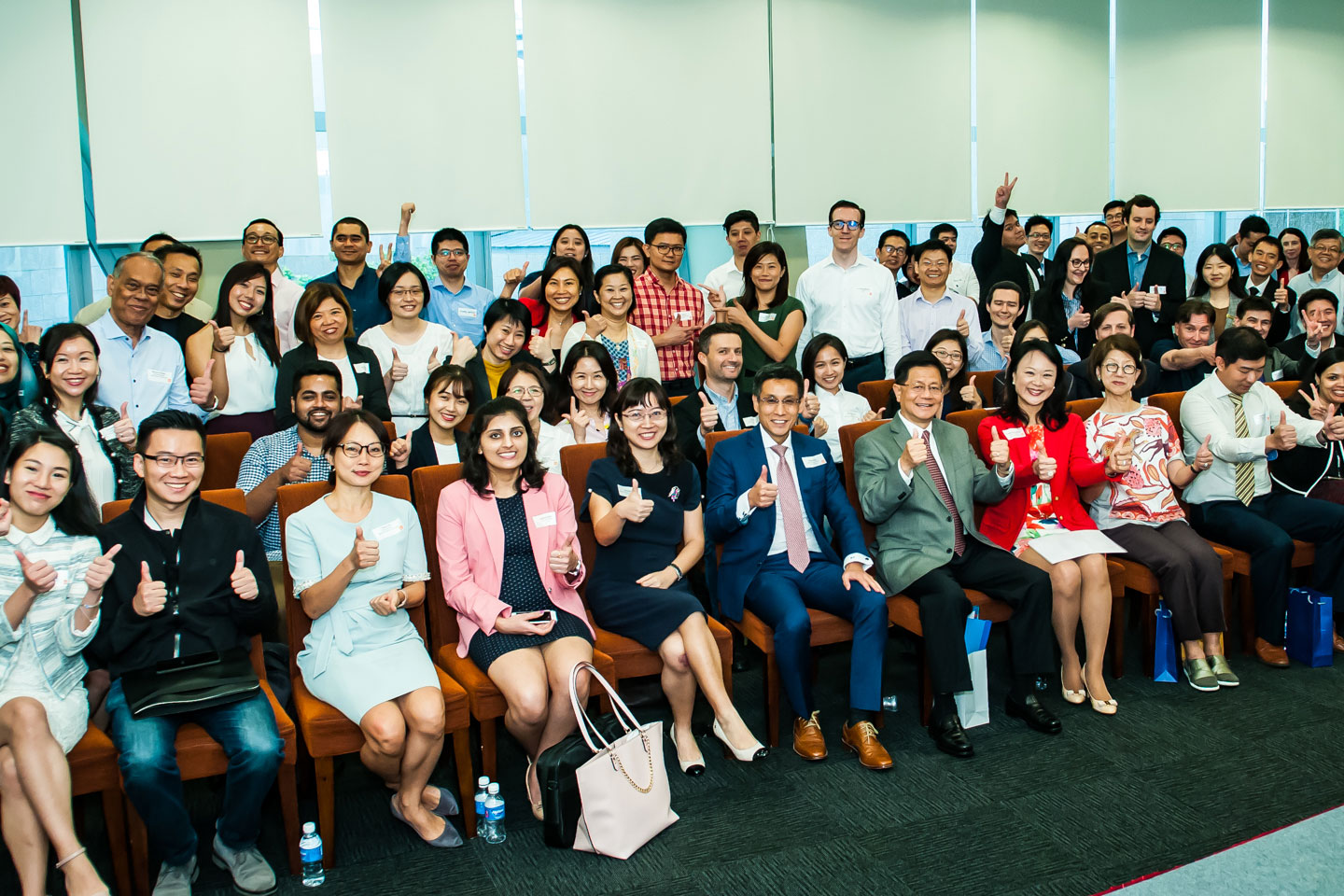
Experiential learning with NUS MBA’s Management Practicum
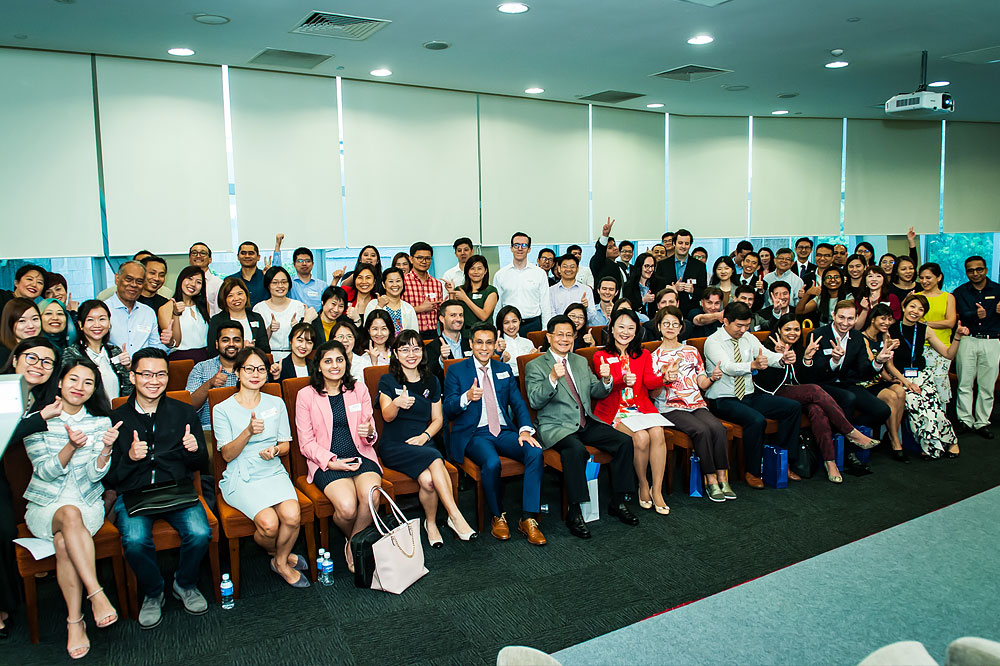
Student teams have a chance to work directly with companies to solve current business challenges at the highest levels while businesses learn fresh perspectives to help improve their organisational effectiveness and competitiveness. At this year’s Appreciation & Experience Sharing Event we shine the spotlight on two projects that collaborated with Akamai Technologies and Aromtech.
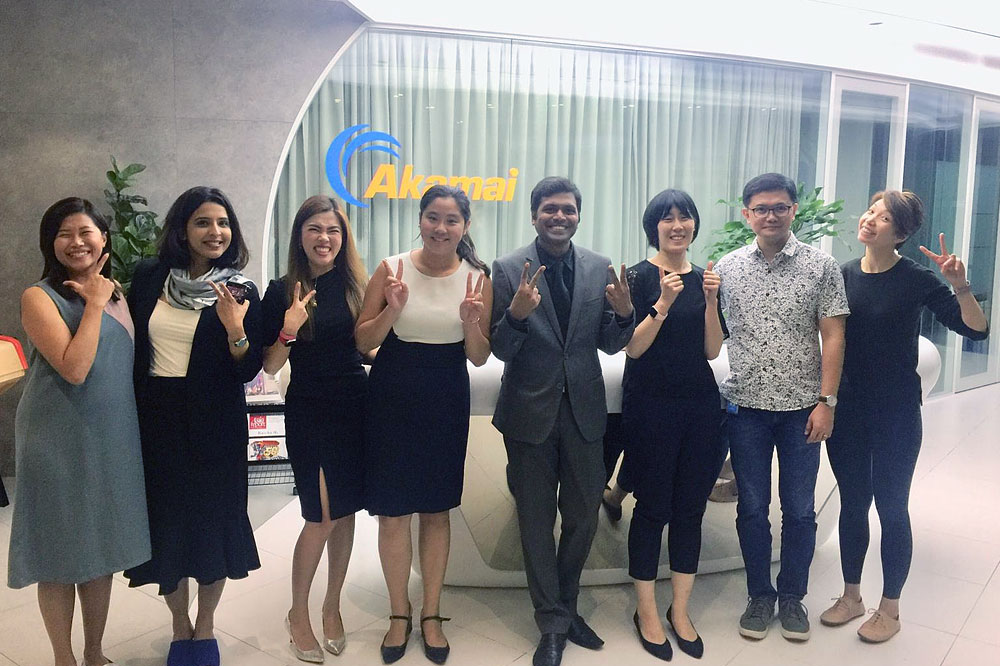
Akamai Technologies
Business challenge: Tasked to create a digital marketing campaign to launch Akamai’s “Experience the Edge” cybersecurity services to India, Japan and Southeast Asia
Team members: Nami Nishimura, Shikha Malhotra, Cindy I-An Lei, Nakul Jalan and Julie Neo
Faculty supervisor Associate Professor Ashok Charan said, “These management practicum projects are often forward-looking and innovative in nature. In a constantly evolving business environment, they prepare students to better comprehend the forces that are transforming markets and learn how businesses adapt to these changes.”
The Akamai team: Field Marketing Manager, Mr Kris SidhartaSenior and Senior Marketing Manager, Ms Sharon Wu, who was also mentor to the team, both said that the recommendations made by the students were extremely useful and that the journey was enriching.
Ms Sharon added, “Entering into this partnership, we knew exactly what the team wanted to learn and achieve out of the project, and I’m so glad the students delivered.”
Project member Nami Nishimura said, “Sharon and Kris were critical in the initial stages, explaining Akamai’s business to us as none of the team members were familiar with the cybersecurity space. They were also always available to provide constructive feedback on our ideas. Overall, it was an educational, enriching and fulfilling experience. Being able to work closely with the team over the course of sixteen weeks have enabled us to know each other really well. ”
As part of the project, the team conducted online surveys, face-to-face interviews, focus group discussions that included cybersecurity industry leaders and even the NUS cybersecurity team.
Teammate Julie Neo felt that the whole team learned a lot about the cybersecurity space and its importance to businesses across industries besides good practices related to digital marketing.
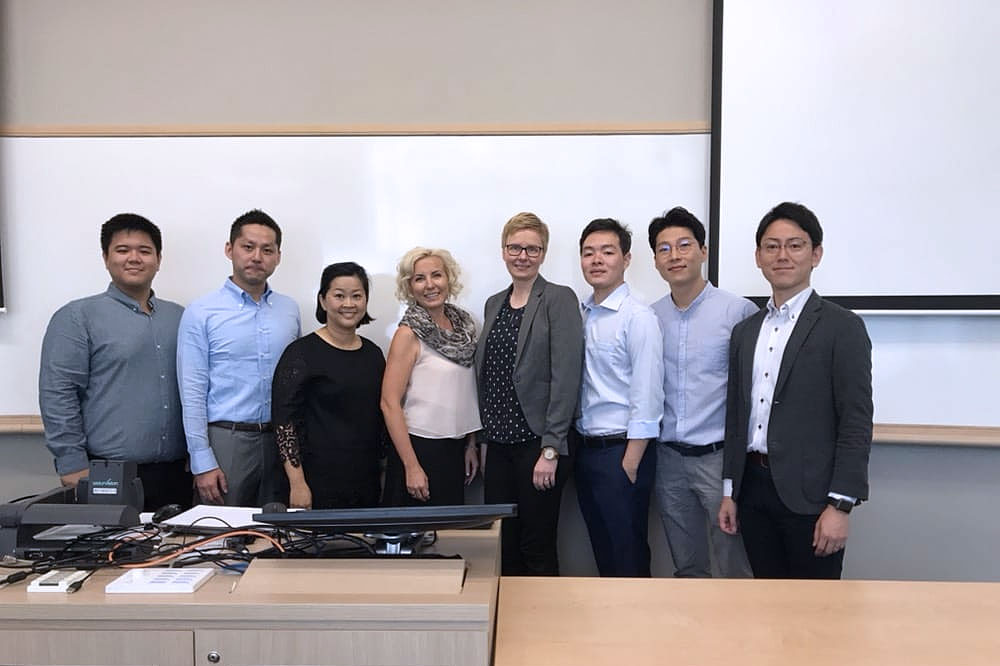
Aromtech
Business challenge: Examine the feasibility of a Finnish product to be sold in two Asian markets (Singapore and South Korea)
Team members: Araki Keita, Jinwoo Kim, Joseph Emmanuel Tan, Kei Inomata and Surat Khaoroptham
Team member Joseph Tan said, “One of our key focus was to identify potential beachheads and the unique aspects and challenges that come with them, as well recommendation of the corresponding strategies that might help the potential entry of Aromtech into the market.”
He added, “Getting to know your team beyond simply looking at their resume would increase your group’s output by leaps and bounds. It also didn’t matter whether we had any backgrounds, what mattered was all the crazy ideas and all the insights that were being thrown around were seriously considered by the group as a group. Keeping an open mind against unconscious bias and having a sharp eye for opportunities will bring anyone a lot further towards their goal than most people understand and will be a lesson that I hope I will learn to live by.”
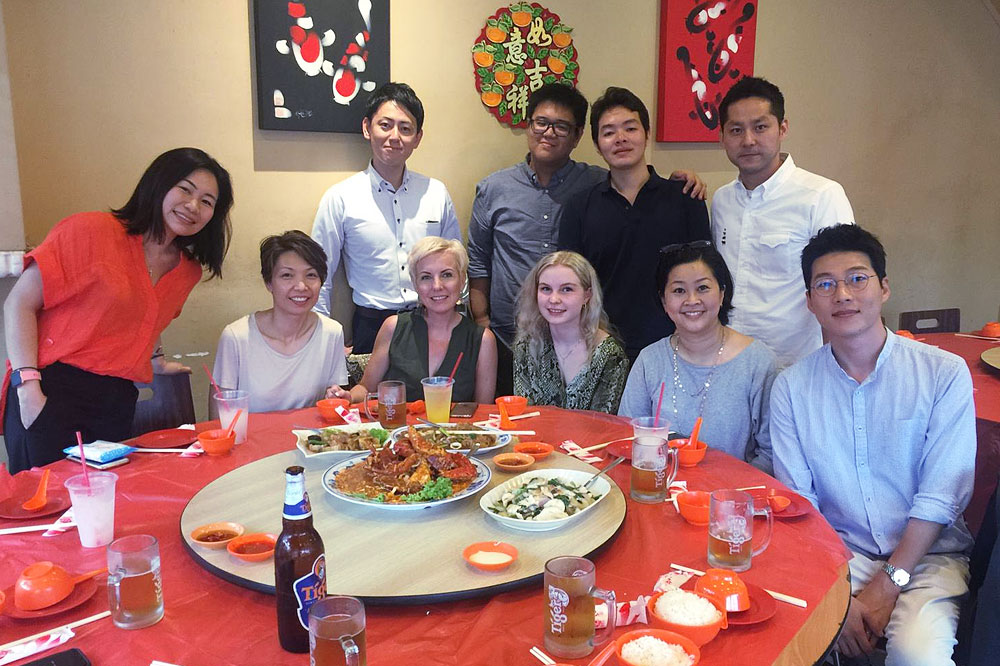
Supervisor Adjunct lecturer Janet Wee commented, “The team had a diversified background, coming from Thailand, Philippines, Korea and Japan, with collective experience ranging from Corporate Finance, Engineering and Brand Management. While the team could apply the knowledge that they have gained from school and leverage on their work experience to provide insights into the markets, the project provided them opportunities to strengthen important soft skills that they would apply for future uses. Some of these soft skills include managing client expectations, negotiation, project management skills, teamwork and leadership, and presentation and communication skills. The project initially started with a much larger scope and product range, which would have been difficult to achieve given the short timeline. The team provided the client with evidential justification on a smaller market focus and deeper practical insights that the client can use for market execution.”
Ms Helena Korte, Managing Director of Aromtech praised the students, “Personally, I’m impressed about the professionalism of the students as well as the team leader and how the programme is organised for the partnering company by NUS Business School. The process was very interesting as we not only got the local expertise of four different Asian countries plus Singapore that helped my team broaden our understanding on the local markets, it helped provide a foundation for further planning and decision making for our business. Working with the students, the outcome definitely exceeded our expectations.”
From August 2019 onwards, the NUS MBA Management Practicum will be renamed MBA Consulting Project as part of the curriculum’s Experiential Core. To find out more, please visit mba.nus.edu.sg.


